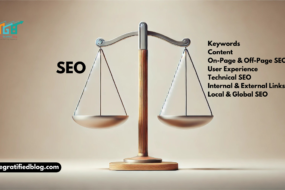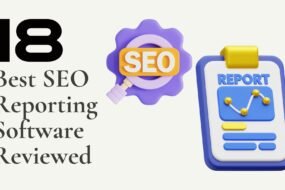
If you’re a business owner, you know that ranking high in search engine results is crucial to your success. And if you need to figure out what SEO citations are and why they’re so vital to SEO, you’ve come to the right place!
This blog post will discuss citations and how they can help improve your ranking in search engines. And explain why they are so influential for SEO. We will also explore different types of citations, Including structured and unstructured citations, and at the end, we will provide five tips for optimizing your SEO citations.
So keep reading to learn more!
What Are Citations In SEO?

From an SEO perspective, citations mention your name, contact information, and website link on external websites or online directories.
They are a critical component of SEO and refer to any mention of your business online. These can include mentions on other websites, social media posts, reviews, and more.
There are two main types of citations:
- Structured Citations
Structured citations refer to the consistent and organized listing of essential business details across various online platforms, such as the business name, contact information, and website URL. This uniform format enhances the visibility and credibility of a business in local search results. By ensuring accurate and standardized information, structured citations contribute to a positive online presence, Facilitating how potential customers can uncover and engage with the business.
The best example of a structured citation is a business listing on Yelp, Google My Business, or another online directory.
- Unstructured Citations
Unstructured citations involve informal and contextual references to your business on external websites, needing a predefined format. These mentions may occur in blog posts, articles, or other content without a dedicated section for business details. While unstructured, they contribute to your online presence and reputation, impacting local search rankings. Monitoring and managing unstructured citations is essential to ensure accurate and positive representations of your business across diverse online platforms.
For example, if someone mentions you in a blog or social media post without providing detailed information about your business.
Why Are Citations So Influential For SEO?
Citations are an essential part of optimizing your site for search engines. The more reputable and relevant citations you have, the more your site will rank in search results.
Here are a few reasons why citations are influential for SEO:
Improve Local Ranking
They can help improve your local ranking by increasing your site’s visibility in search results.
This is especially important if you operate a local business, as it helps ensure that potential customers can easily find and visit your website. It also helps build trust and authority in your industry.
Increase Website Visitors
They can also help drive more traffic to your website. This is because they can increase the exposure of your business and improve your brand awareness, which in turn prompts more visitors to check out your site. With increased traffic comes increased opportunities for sales, leads, and conversions.
Boost Referral Traffic
Citations can also boost referral traffic by increasing backlinks to your site.
When other websites feature a link to your site, it increases the authority and helps you rank higher in search results for related keywords or topics. This drives even more visitors to your website, helping you grow your business over time.
Improve Engagement With Customers
Finally, They can help improve engagement with potential and existing customers by providing helpful information about your business.
For example,
They can include a description of your products or services, photos of your products or work, customer reviews and ratings, etc. This gives customers a better idea of what you offer, which in turn helps them make more informed decisions about whether to do business with you.
Now that you understand the importance of citations for SEO, let’s look at some tips for optimizing your citations and increasing your site’s ranking.
Five Things To Optimize In Citations For SEO

Well, there are many different things you can do to optimize your citations for SEO; five of them are mentioned below:
- Optimize NAP
NAP refers to your business name, address, and phone number. To optimize these, ensure all the information is consistent across all citations. Studies have shown that consistent NAP is good for local SEO ranking.
- Ensure Each Citation Contains A Link To Your Website
Your citations should always include a link back to your website. But be focused. Several businesses link to their homepage.
To get better results, you need to link to the location page. So, this reduces the user’s effort to get the information they want.
- Optimize Your Description
The description is vital to your citations, as it provides potential customers with information about your business and what makes it unique.
To optimize your description, ensure you use keywords and include information relevant to your business or industry. But, before adding keyword research about what the audience wants.
- Include High-Resolution Photos And Images
Photos and images can also help your citations stand out, adding visual interest and making your business more appealing to potential customers.
You should always choose high-quality, optimally sized photos that are professional in appearance. And be sure to include multiple images – this will give people a better idea of your business.
- Pick The Correct Category For Each Listing
Finally, selecting the right category for each citation you create or update is essential. This ensures that you’re targeting relevant keywords to your industry and will help you rank higher in search results over time.
To choose the right category, do keyword research to find out what keywords or search terms people use for your industry or niche. Then, you can incorporate these keywords into your category choices to help optimize your citations for SEO.
So, these are five things to keep in mind when optimizing your SEO citations.
How To Track Citation Performance?

Many different tools and platforms are available to help you track the status of your citations. Some popular options include:
- Screaming Frog: This powerful tool can help you analyze and track the status of your citations. It allows you to scan a list of potential links and offers a range of valuable metrics that can help you assess the performance of your citations over time.
- Moz Local: Moz Local is another popular tool for tracking your citations. It provides a convenient dashboard that lets you see how your citations are performing over time and can take the necessary steps.
FAQs
Q1. Do I Need To Pay For Citations?
A. Sometimes, you may need to pay for citations to get your business listed on specific platforms. However, many free options can help you optimize your citations without paying. But as you know, the more high-quality citations you have, the better your chances of ranking higher in search results and increasing your site’s visibility.
Q2. Are The Local SEO Results Guaranteed?
A. Local SEO results are not guaranteed, as many factors can impact your site’s ranking in search results. However, optimizing your citations can help increase your chances of achieving better SEO results.
Q3. How Often Should I Update My Citations?
A. There is no one-size-fits-all answer to this question, as the ideal frequency of citation updates will depend on many factors. Generally, checking and updating your citations regularly is an excellent idea to ensure they are correctly optimized over time.
Also Read: A Complete Guide for SEO For Startups
Final Thoughts
Now, you might clearly understand citations in SEO and how to track and optimize your citations for SEO success. Then why give it a try and start optimizing your citations today? Remember, always keep experimenting and tweaking your optimization approach for better Results.
If you have any questions regarding SEO citations, please leave them in the comment section. We will be happy to answer you.
Thanks for reading 🙂








No Comments